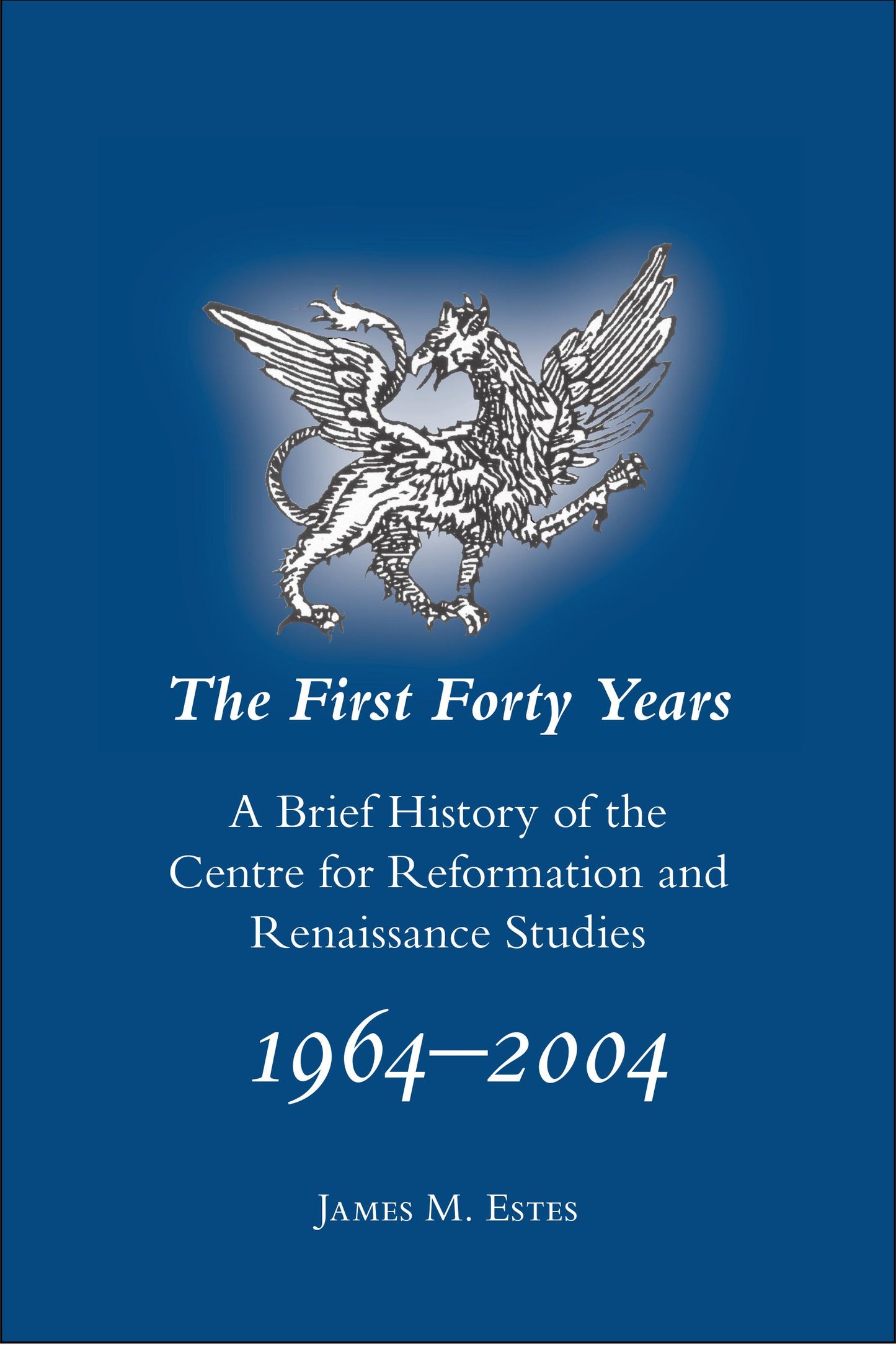The First Forty Years: A Brief History of the Centre for Reformation and Renaissance Studies, 1964-2004
By James M. Estes
Overview
This little volume contains the first written account of the history of the CRRS from its earliest beginnings to 2004. Based on archival records as well as on interviews with the principal protagonists, it explains why the Centre was founded and describes how it developed out of modest local beginnings to become the internationally recognized research centre that it is today. In so doing, it brings to light many aspects of the Centre’s history that have hitherto not been widely known.
James M. Estes is a Reformation scholar and Professor Emeritus of History at the University of Toronto. He arrived at Victoria College in 1962 and has been intimately involved in the history of the CRRS ever since its foundation in 1964. He was Director of the Centre from 1979 to 1985. At the time of his retirement in 1997, he was appointed Distinguished Senior Fellow of the Centre.
108 pp.
ISBN: 978-0-7727-2026-9 softcover
Published: 2004
Contents
Preface
Introduction and Acknowledgements
I. Getting Started: David Hoeniger as Founding Director, 1960-1969.
II. Making the Most of Hard Times: Harry Secor as Director and David Hoeniger as Director Again, 1969-1979.
III. Dealing with the Consequences of Success: James Estes as Director, 1979-1985.
IV. Staying the Course: Germaine Warkentin as Director, 1985-1990.
V. Familiar Challenges and Unexpected Troubles: Konrad Eisenbichler’s First Term as Director, 1990-1995.
VI. Per Aspera Ad Astra: Konrad Eisenbichler’s Second Term as Director, 1995-2000.
VII. A New Home and a New Start: The Directorship of William Bowen, 2000-[2005].
Appendix I: People at the CRRS
Appendix II: Conferences at the CRRS
Appendix III: Publications of the CRRS
Praise
"This fascinating collection of articles and its suggestive juxtapositions extend the question of hospitality in early modern Europe, showing its implications across institutions, cultures, and social practices." - Sean Lawrence, University of British Columbia
Couldn't load pickup availability


